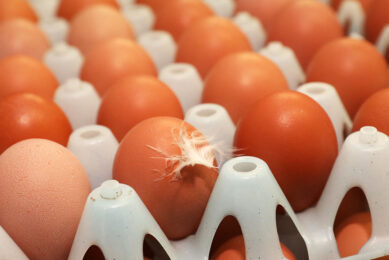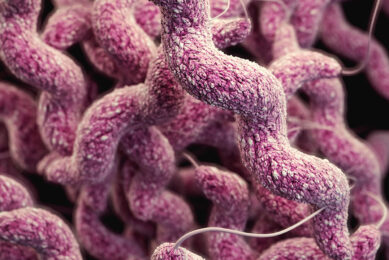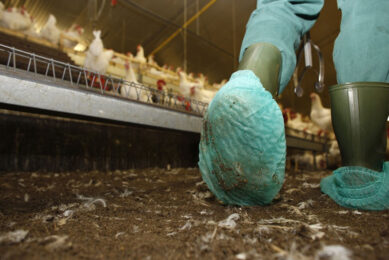Trojan horses may protect Campylobacter
Scientists at a recent meeting of the Society for General Microbiology believe that the food poisoning bug Campylobacter is lurking in poultry farms, protected by Trojan horses – in the form of protozoa.
Campylobacter bacteria are still common on intensive poultry farms in spite of rigorous cleaning and disinfectant regimes, and many strains are resistant to antibiotics, creating problems for doctors trying to treat patients with this type of food poisoning.
Campylobacter, primarily C. jejuni, is the third leading cause of death from foodborne infections in the world. Campylobacteriosis can be caught by eating undercooked infected chicken, or food cross-contaminated by infected chicken.
“We could not understand how Campylobacter could survive since it is usually killed by disinfectants,” says Dr Bill Snelling of the University of Ulster in Coleraine, Northern Ireland.
“We discovered that the bacteria are hiding in Trojan horses called protozoa. This group of larger microbes, which live in water and feed on bacteria, are like the ones you can see through microscopes when you go pond dipping as a child,” says Dr Snelling. “We found many different protozoa in the farm water supplies of intensively reared poultry, and we also found the Campylobacter bacteria”.
Laboratory experiments showed that protozoa actually protect the Campylobacter – the bacteria were absorbed, but not killed or digested as expected. The bacteria could stay alive inside the protozoa for up to two days, even with the addition of disinfectant.
Now that the scientists know where the organism hides, they are hoping to identify better ways to kill it, eliminating it from the food chain.
The scientists believe that Campylobacter may not be the only disease-causing bacteria using protozoa as a protective mechanism.
Join 31,000+ subscribers
Subscribe to our newsletter to stay updated about all the need-to-know content in the poultry sector, three times a week. Beheer
Beheer








 WP Admin
WP Admin  Bewerk bericht
Bewerk bericht